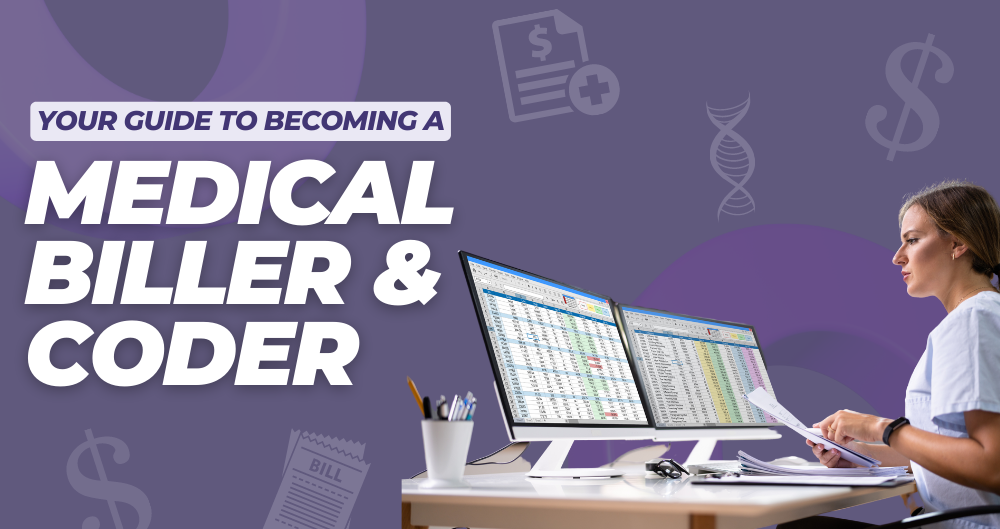6 Steps to Become a Medical Biller and Coder

Are you ready to unlock a rewarding healthcare career? Medical Billers and Coders are in high demand, with excellent job prospects. This ultimate guide will help you become a Medical Biller and Coder, providing detailed steps and resources. Lets dive in and start your journey!
Where can I find Medical Billing and Coding certification classes?
Dreambound schools provide Medical Billing and Coding certification classes from $1,000 to $5,500. The training programs usually last 3 to 12 weeks, offering flexibility for quick certification.
We support you at every step of your Medical Biller and Coder journey. Search Medical Billing and Coding certification classes by entering your zip code. And get access to a list of schools and training programs offering certification.
Don't wait any longer! Take the first step by exploring the options available through Dreambound.
Where can a Medical Biller and Coder work?
Medical Billers and Coders can find employment in various work settings, including:
- Hospitals
- Physician's Offices
- Clinics
- Insurance Companies
- Coding Companies
- Medical Billing Companies
- Nursing Homes and Long-term Care Facilities
- Government Agencies
Medical Biller and Coder salary and job opportunities
As a Medical Biller and Coder, you receive competitive salaries as a reward for your efforts. Compensation varies on experience, location, and work environment.
As of May 2023, the median annual wage for this occupation was $48,780, with an 8% job growth projected from 2022 to 2032. This career offers stability and growth opportunities.
Thus, a medical billing and coding career provides stability and growth opportunities.
Can Medical Billers and Coders work remotely?
Yes, Medical Billers and Coders can often work remotely due to the computer-based nature of the job and the trend towards remote work in healthcare. Just check with employers about their policies and ensure a secure remote work environment.
Career advancement opportunities for a Medical Biller and Coder
Here are 3 career paths for a Medical Biller and Coder seeking advancement:
- Coding Specialist: Deepen your expertise in a specific medical field like cardiology or orthopedics. This specialization allows you to handle complex coding scenarios and potentially command a higher salary.
- Coding Auditor/Compliance Officer: Leverage your coding knowledge to ensure accuracy and compliance in medical billing practices. This role involves reviewing coding practices and potentially training others.
- Coding Supervisor/Manager: Lead a team of medical billers and coders, overseeing their work, resolving issues, and ensuring efficiency. This path requires strong leadership and communication skills.
Final Thoughts
Becoming a Medical Biller and Coder is a rewarding career choice in healthcare. Follow the steps, gain experience, and get certified to start this exciting journey.
If you're located somewhere else or thinking about moving, check out some other guides we've written:
- Medical Billing & Coding classes near me in Atlanta
- Medical Billing & Coding classes near me in Fresno
- Medical Billing & Coding classes near me in Palm Bay
Discover flexible online course options with the help of these guides:

Blessed Joy Amarga is part of the Growth and Sales teams at Dreambound. She helps bring in new leads, increasing the number of people at the top of the sales funnel, and supporting the team in creating graphics to boost social media engagement. Blessed is also a Licensed Architect. Outside work, she enjoys traveling and exploring new places for her vlog.





